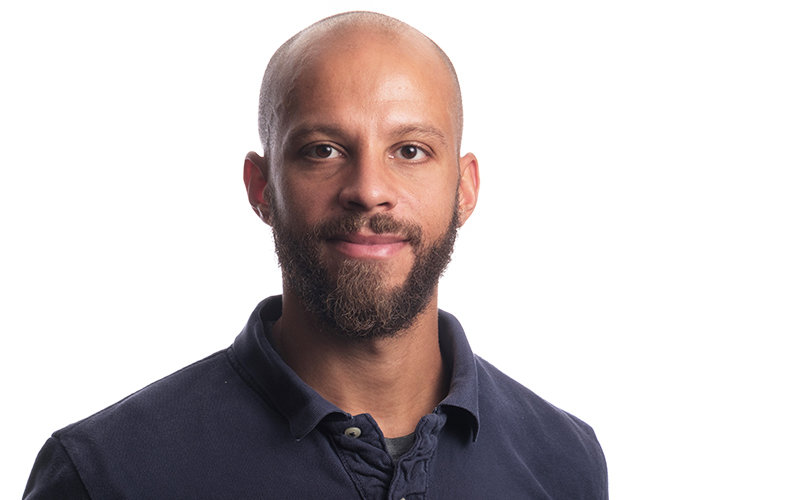
Motivated by his interests in human health, bioorganic chemist Kelvin L. Billingsley leveraged his expertise in biomedical imaging and medicinal chemistry to develop new agents for the diagnosis and treatment of cancer.
Billingsley moved his laboratory to Cal State Fullerton this fall semester following a four-year post as an assistant professor in the Department of Chemistry and Biochemistry at San Francisco State University. In his lab, he focuses on the discovery and application of new therapeutics, chemical probes and methods for organic synthesis.
He has 18 peer-reviewed publications and has received several grants for his research, including a nearly $500,000 National Institutes of Health-Support of Competitive Research (SCORE) grant in 2015 for a three-year project related to the medical imaging of metabolic pathways relevant to cancer.
Billingsley, who joins CSUF as an assistant professor of chemistry and biochemistry, earned his doctorate in organic chemistry from Massachusetts Institute of Technology. He conducted postdoctoral research in medicinal chemistry and radiology at Stanford University and also holds a bachelor’s degree in chemistry from the University of South Carolina.
What inspired you to go into to this field of study?
A basic understanding of organic chemistry provides explanations for countless phenomena in the world — a fact that has inspired me since I was an undergraduate student. Moreover, I’m intrigued because organic chemistry is its own language. The molecules initially look like hieroglyphics, but in time, these symbols take on a deeper conceptual meaning.
What are your research interests?
The goal of my research is to develop new molecular agents that can have an impact on human health. In my lab, we design novel imaging techniques to diagnose various diseases. We further use our expertise in organic chemistry to synthesize therapeutics for the treatment of specific disorders. Collectively, these projects allow us to employ innovative approaches to tackle medical problems of clinical significance.
What do you hope students get from your teaching?
I hope that the students retain a practical knowledge of the subject throughout their scientific careers.
What would you others to know about your field?
Organic chemistry isn’t as challenging as one might think.